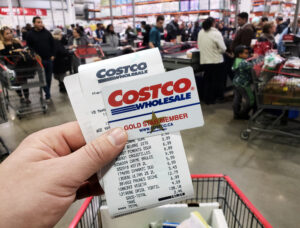
Buy off your car and keep using it
According to the latest Experian State of the Auto Finance Market report, the average term for new-car loans in the United States has exceeded 70 months, as of March 2020. This means that even if you can afford to make a significant upfront payment, you’ll still have to pay hundreds of dollars for several more years. This debt could very well extend into your retirement.
So why saddle yourself with another debt when you could solve things in a much smarter way? If you already have a vehicle that’s in good condition and you’re almost finished with paying it off, keep driving the car even after you’re debt-free. With a global recession on the way, it’s better to get rid of debt instead of accumulating more, don’t you think?
Speaking of which, check out these 13 Things You Shouldn’t Purchase During a Recession. Do you think a new car is on the list?

Cut your monthly expenses
If you’ve already heard this before, it’s because it’s essential to your financial wellbeing. Most people waste a great deal of money on unnecessary things. Unused gym memberships, extra subscription services, expensive gifts and the like, are the first ones that should go. Obviously, important costs such as electricity, cable and insurance cannot be eliminated for good, but they can also be reduced dramatically if you shop around until you find the best deals for your money.
It’s also important to do your part like setting your thermostat 5°-8° higher in the summer and 10°-15° lower in the winter to save 10 percent on annual energy costs. Opting for a streaming service instead of cable or TV satellite could also save you $40-$50 per month. You can use all the extra money to boost your retirement funds.
RELATED: 20 Surprising Ways to Cut Costs On Every Aspect of Your Home





























































